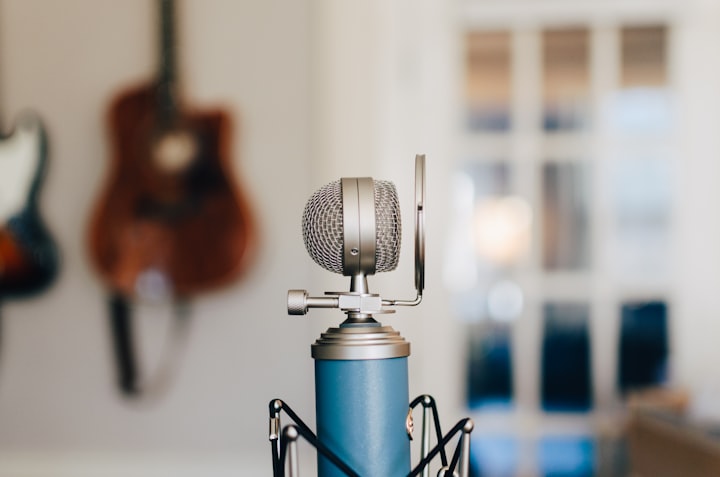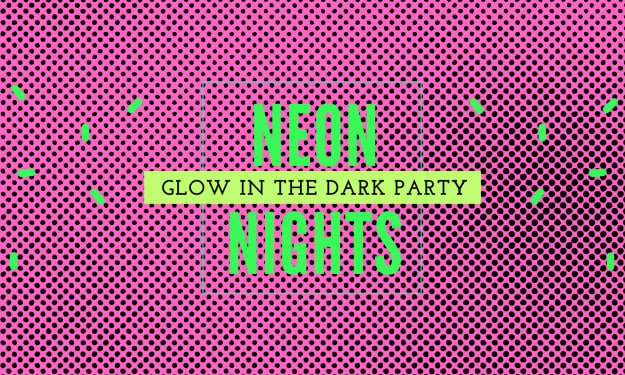
Music has an unspoken power over the human spirit. It gives flavor, touch, smell, and color to our lives—a biological symphony of chemistry and communicating synapses that result in a moving experience. It drives our motivations, influences our emotions, and describes the indescribable. It is woven into the very fabric of humanity. Music is what Aldous Huxley called "the blessedness that is at the heart of things." Whitman described it as "the profoundest expression of nature."
The music we listen to in life stays with us, long after other memories fade. A study that involved playing patients with Alzheimer's Disease (AD) music from their childhood and adolescence found that patients could remember the melody, exhibited as they tapped their foot along to the beat. There was also an afterglow period of about 30 minutes where the subjects were more receptive to cognitive improvement tasks.
" I sang or played Frank Sinatra's "In the Wee Small Hours of the Morning" to wake him up. Instead of being lost and confused in the mornings, as often happens for people with Alzheimer's, the song made him realize where he was and who my mother and I were."
Neuroscientist Dr. Jacobsen and their associates conducted a study comparing brain activity while listening to music in young adults vs. patients with AD. They found the area of the brain involved with storing and processing musical memories was less affected by AD than other brain processes involving memory.
"Our favorite songs transport us largely by conjuring surrogate emotions: the neural apparatus of emotion, reward, autonomic and motor programs are hard-wired into our experience of music, and this may have been the very point of music, in evolutionary terms."
A Refuge For a Community

It's no wonder that music drove most of the Civil Rights movements in the United States. It gave people a way to speak their truth before society was willing to accept it. Stored within blues lyrics, hinted at under a somber note. When the Queer community only had one another, they used music to bind them.
They connected on dance floors and at nightclubs, some of the only places that allowed them to be social and free. But what was playing at places like the Stonewall Inn? And what were they saying that became so important to this marginalized group? To find out, we have to visit the roaring 20s and the spiral of the Great Depression.
Singing the Blues
In 1928, Ma Rainey, nicknamed the Mother of Blues, released "Prove It On Me Blues." A tongue-in-cheek song that challenged others to catch her in a lesbian affair. Rainey was one of the first to overtly state her sexuality and boldly defy the mold set out for women.
Aside from singing about her preferences, she also told tales of infidelity and promiscuity, something unheard of for women at the time. However, while Ma Rainey chose to deliver her message in an upbeat and rebellious way, her apprentice Bessie Smith, does the opposite, singing with a tone that will strip you bare.
They say you have to experience pain to sing the blues, and Smith had her fair share. She grew up in poverty in Chattanooga, TN, with her mother, father, and seven siblings. Her mother passed away when Smith was eight years old, and she and her brothers took to the streets to perform and earn money to support the family. At sixteen, she met Ma Rainey, and the two women became lifelong friends.
Time gives us the ability to recolor the past with perspective. Knowing that The Empress of Blues was bisexual gives a new depth to the emotion she portrays with her voice. She never shied away from the grim realities of life and love. Knowing she was hiding a huge part of herself, I find nuance in her music. Always devoid of self-pity, just a realistic bare-bones view of the world that leaves you feeling exposed like an open wound.
"You get to see old heroines in a new light and re-explore their legacy with fresh meaning. This is how I felt when I found out Bessie Smith was Bisexual. Suddenly the pain and longing imbued in the haunting vibrato of Bessie's voice had taken on new, technicolored emotion."
-Zamamdoda via Afropunk
Women were leading the charge to equality in 20th century America. Lucille Bogan released "B.D. Woman" in 1935 (B.D. being a derogatory term for lesbian women). Where she explicitly describes the mistreatment of gay women and shines a light on their experience.
"Comin' a time, B.D. women ain't gonna need no men.
Oh, the way they treat us is a lowdown and dirty sin.
"B.D. women, you sure can't understand.
They got a head like a sweet angel, and they walk just like a natural man. "
While Lucille Bogan, Bessie Smith, and Ma Rainey openly sang about their sexuality, other artists like Sister Rosetta Tharpe, Mamie Smith, and Sippie Wallace challenged traditional gender norms, paving the way for future musicians like Prince and David Bowie.
The JukeBox At Stonewall
In 1969, Jukeboxes were how most music was played. The Stonewall Inn had two. One for the more conservative, and one in the back for the cool kids. On the night the riots started the following songs were on the Jukebox, the playlist included Harry Nilsson's "Everybody's Talkin," a song about pursuing freedom from the past in the hope of a better future. Or possibly about struggling with mental health and finding the end of a long dark tunnel.
"Everybody's talkin' at me
I don't hear a word they're saying
Only the echoes of my mind.
People stop and stare
I can't see their faces,
Only the shadows of their eyes."
Frank Sinatra
The Stonewall Inn Jukebox may seem like a strange place to find Frank Sinatra, but his song "My Way" was a regular on the rotation. One of my favorites about walking through fire and overcoming doubt to achieve what you want to. It builds and builds to a thundering end where Frank proclaims that he did it his way, after it all.
"To say the things he truly feels,
And not the words of one who kneels.
The record shows,
I took the blows,
And did it my way.
Yes, it was my way."
Diana Ross
There were also gay icons like Diana Ross, whose song "Coming Out" became an LGBT anthem. Diana Ross's dynamic and vibrant personality was magnetic for people like Ru Paul, who credits her as being his childhood idol. Diana also spoke out for gay marriage long before it was legalized by saying,
"Love is love, and maybe you don't need it to be legal," It seems like girls, guys, whatever, should be able to live together without a legal contract."
The statement spoke volumes for the idea that people should love who they wish without interference or approval from a court.
Shirley Bassey
Shirley Bassey's "This Is My Life" describes the downtrodden feeling of being dissatisfied with life and the decisions we make. But it ends with a build-up disco finale that encourages people to be grateful and proud of themselves and their contribution to the world. I can picture the dance floor flooded with the collective energy to love and accept yourself floating in the room.
Of course, the classics were also played, such as "Get Back" by the Beatles and lots of Motown.
"Our generation was wearing T-shirts and jeans. We were dancing to the Fifth Dimension and songs from 'Hair.' We were dancing to The Beatles, Motown."
-Gay Activist, Mark Segal
The Evolution of Music
The LGBTQIA+ Community has continued to chip away at the mountain that separates them from loving who they want and identifying how they please. There has been significant progress, and the obstacles in the way now look different.
While being attracted to the same sex was more likely to get you killed in earlier years, today, the threat still exists. Teens are still turned away from their homes, and religion dictates most of the narrative surrounding what life as a queer person may look like.
As young girls in the closet, we learn to idolize brave artists who tell the truth about their experiences. From them, we know to be ourselves; we understand what a queer woman looks like, what she sounds like, how she moves through society. Modern-day artists are still making waves and advocating for an equal world. The following ladies have made a tremendous impact on me, sprouting confidence where there was none.
Tash Sultana
I fell in love with Tash's music before I heard her voice. The beginning of her song "Jungle" starts with the most beautiful instrumental I've ever heard. The guitar carries the melody and eases you to the point where by the time she starts to sing, you are completely entranced.
I've always admired Tash Sultana's ability to say a lot through very few words. Instead, she relies on her guitar to tell most of the story. Her arrangments are buttery smooth and create such an unmistakable aura. Every performance, she switches it up based on her current crowd and the moment at hand.
"It's like being in a trance, like I get this electric current through my fingertips. Sometimes I shake. People say I look like Hendrix when I'm about to rip a solo because I move my shoulders like he does and do the chewing."
-Tash Sultana
Haley Kiyoko
"My journey has really been trying to normalize girls loving girls. "
-Hayley Kiyoko
I fell in love to Haley's music. When I hear this song, I can only picture brown hair swaying in the summer night, my girlfriend smiling at me, making my heart race in my chest. I think about laughing and singing "Girls Like Girls" at the top of our lungs. I have to revisit it over and over simply to pay homage.
Her style is fun and rhythmic; she tells a painfully simple yet true message.
"Girls like girls, like boys do."
Lady Gaga
I was only in grade school when Lady Gaga was rising to popularity. Even then, I knew I liked girls, but I was too scared to admit it. Gaga is bisexual and fights back against the perspective that if you engage in a heterosexual relationship, you're no longer queer. Songs like "Born this Way" encouraged me to be more confident.
I liked that she wore what she wanted and pushed the boundaries of what was considered normal. To me, by being so eccentric, she showed that the cookie-cutter model of stardom and personhood was outdated.
"I mean, I am bisexual; I've said it before, I'll say it again. I don't need to -– I'm sorry if this is a bit vulgar – but I don't need to eat pussy in front of the whole world for people to take me seriously. You can believe it or not; it's just here, I'm honest.
I'm not saying it to be controversial; there you have it, here I am, take it or leave it. I know I am not just a lesbian –- I have a boyfriend –- but all of my friends are in this community."
-Lady Gaga
Parting Words
When our time has passed, our generation will be defined by what we listened to, what we wore, and what was important to us. Music powers our advocacy- amplifies our truth. Music guided me out; it helped me feel less alone. I knew what heartbreak felt like before I ever experienced it; I knew the anger that welled up in the chest of someone discriminated against before I had ever been.
I knew the smoothness of lips before I had ever been kissed. I knew all these things because an artist made their emotion real for me. Now, with the ability to revisit the past and its music, I can truly see what the pulse of the LGBTQIA+ community is powered by. So sit back and relax, play the playlist in full, and visit Christopher Street.
----------------------------------------------------------------------------------------
Thank you for reading! Did you recognize some of the songs? If you enjoyed, drop me a like, I'd really appreciate it.
Love Vocal and want to participate in challenges like these? Join here and get your first month for a dollar!
Find me on instagram @awriterwhodraws
Thank you again, talk to you soon,
RJ.
About the Creator
RJ
Find me on Instagram at @awriterwhodraws






Comments
There are no comments for this story
Be the first to respond and start the conversation.